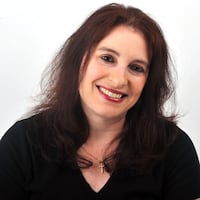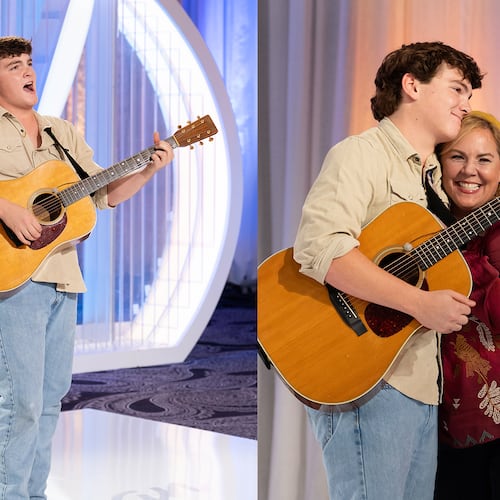Editor’s note: With live music and concert reviews on hold due to COVID-19, The Atlanta Journal-Constitution is focusing on how Georgia musicians are spending their time in our feature, Mic Check.
Henry Paul has a long, synonymous history with Southern rock.
As a member of the Outlaws since 1971, creator of The Henry Paul Band later that decade and a co-founder of country-leaning rockers BlackHawk in the early ’90s, Paul’s fingerprints have touched dozens of hits. From the Outlaws’ “There Goes Another Love Song” to HPB’s “Keeping Our Love Alive” to BlackHawk favorites “I’m Not Strong Enough to Say No” and “Like There Ain’t No Yesterday,” Paul has been a steady musical presence.
Earlier this year, a new Outlaws record, “Dixie Highway,” arrived and in November, a two-disc greatest hits project from BlackHawk, “Just About Right: Live from Atlanta,” which was recorded at Eddie’s Attic, joined the band’s repertoire.
Paul, who lived in Forsyth County for six years until 2018, now resides on a farm outside of Nashville with his wife, Rachael, 5-year-old son Jackson and dog Hurley (named for his hometown in upstate New York) as they await the arrival of a second child in April.
Amid his life with “tractors going up and down my road,” tending to his barn, an expansive garden, about a dozen chickens and a pool, he’s also working on building a greenhouse and eventually returning to his idea of starting a produce business (which hit the back burner when the coronavirus arrived).
A new BlackHawk studio album with partner Dave Robbins is expected in early 2021. (Fellow BlackHawk Van Stephenson died from melanoma in 2001 at the age of 47.) . But for the moment, Paul is delving into rural living — and promoting the live album — with unfettered enthusiasm.
Q: It sounds as if your year took a detour from the stage to the farm.
A: We had 10 to 15 dates on the books for 2020, and when we came home in March from a trip, that was the last show this year we did. Luck would have it that we have a new home with an endless list of things to be done out here. I’ve been on a tractor cutting hay, battling insects with Dawn dishwashing liquid, landscaping our yard.
Q: Is being on a farm natural for you?
A: I came from New York, and my grandfather had 1,000 acres near Woodstock, and I spent summers on a tractor. It’s definitely hard work. I’m getting a (butt) whooping on a regular basis here. I’ve been 100% invested in everything to do with our new home since we came off the road. I have a small studio at home so I’ve been able to record. Dave and I are starting a new BlackHawk studio album here. We have time to work on our musical projects with BlackHawk and the Outlaws. Both of those bands together make for a really good year (touring); we’re out there as much as we want to be. Everyone in the band and crew was making a good living (before we had to stop). The Henry Paul Band is also still active — all the original members are alive, and we do four to six shows a year. So, I’m busy with all of that, and we have this young family.
Q: Tell me about the live album — when did you record it at Eddie’s Attic?
A: In 2017. We wanted to record some of the songs that we loved off the records we made that never really made it into the show. Dave and I sat down and put together a pretty long list. We had played Eddie’s once before and liked the vibe. We went to a few of the guys in our backup band including Randy (Threet), the bassist, and Steve Grisham from the Outlaws, along with (guitarist) Dale Oliver, who was an original member of the touring band, and Bobby Huff, who we invited to play percussion. Also a Nashville session player, Jason Roller, he played violin and mandolin with us. We wanted to impress upon people that our songwriting was very comprehensive. I think selfishly my goal was to cast BlackHawk with an artistic sort of personality and separate us a little from the commercial country bands. There were a number of successful bands in that ’90s timeframe, but they were more country-lifestyle related. With BlackHawk, we were just wired differently. Artists like Dan Fogelberg, Stephen Stills, David Crosby — we come from a generation where musical excellence is more than just a chart record; it’s an artistic offering.
Q: Why was recording the album in Atlanta special to you?
A: I had seen and heard of Eddie’s Attic, but had never played it. Living there, and living five minutes from (manager) Charlie (Brusco), the idea of BlackHawk playing Eddie’s was like a novelty in a way, and also a little bit of a departure from their artist roster. We thought everybody would win. We’d fill the room, and we’d get the reward to play in an aesthetically pleasing circumstance. I was listening to the record after we mixed it and to my between-song commentary. Luckily for me, what I said was pretty brief and pointed. Nothing makes me crazier than some guy who panders to the audience.
About the Author
Keep Reading
The Latest
Featured




